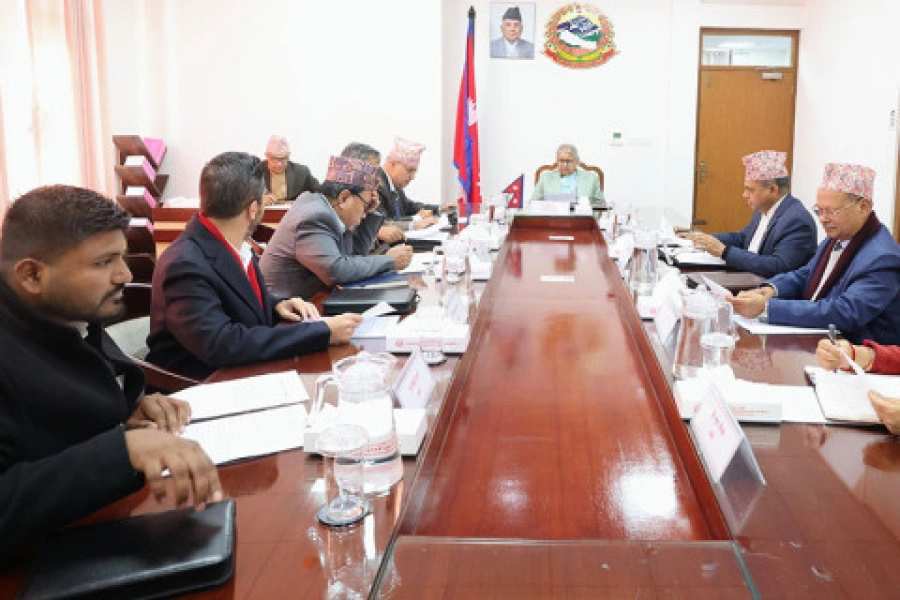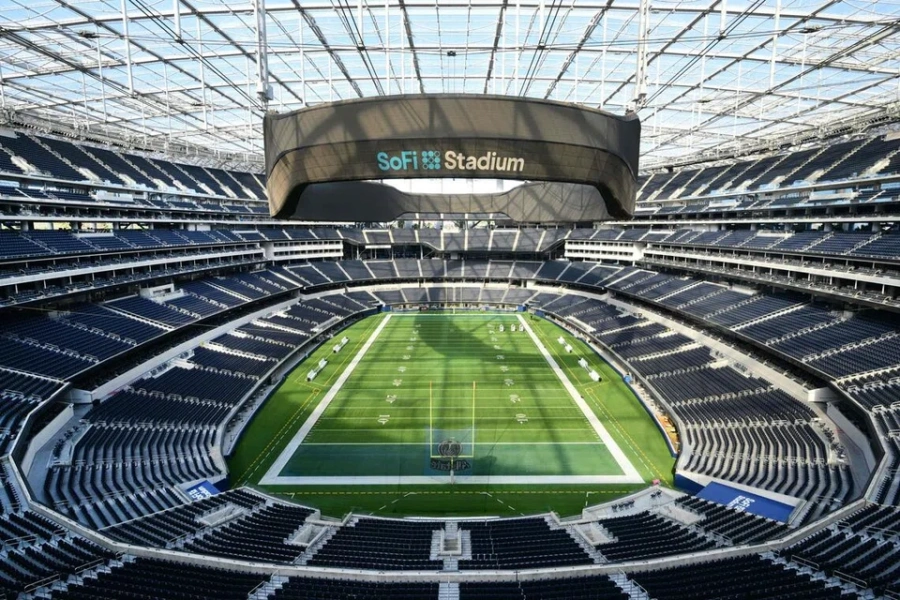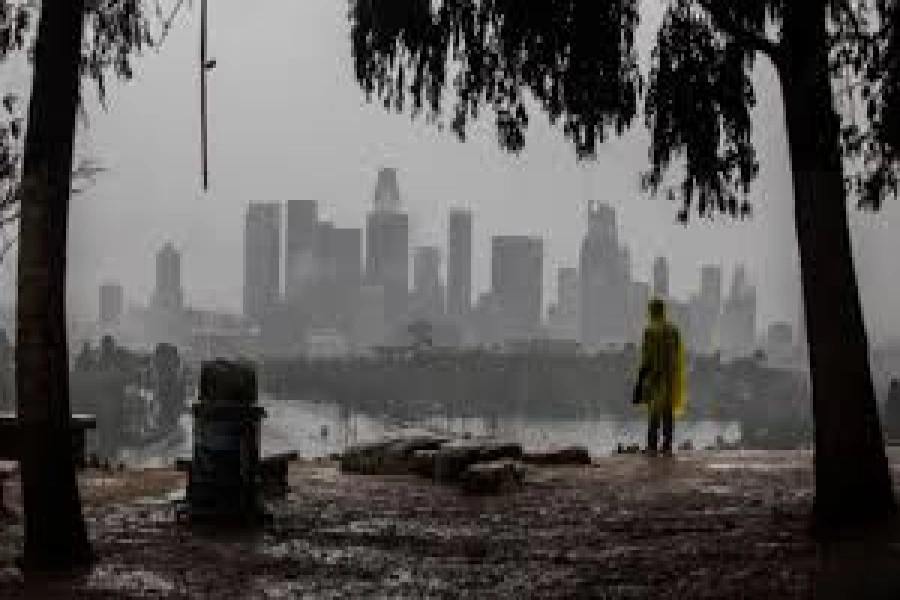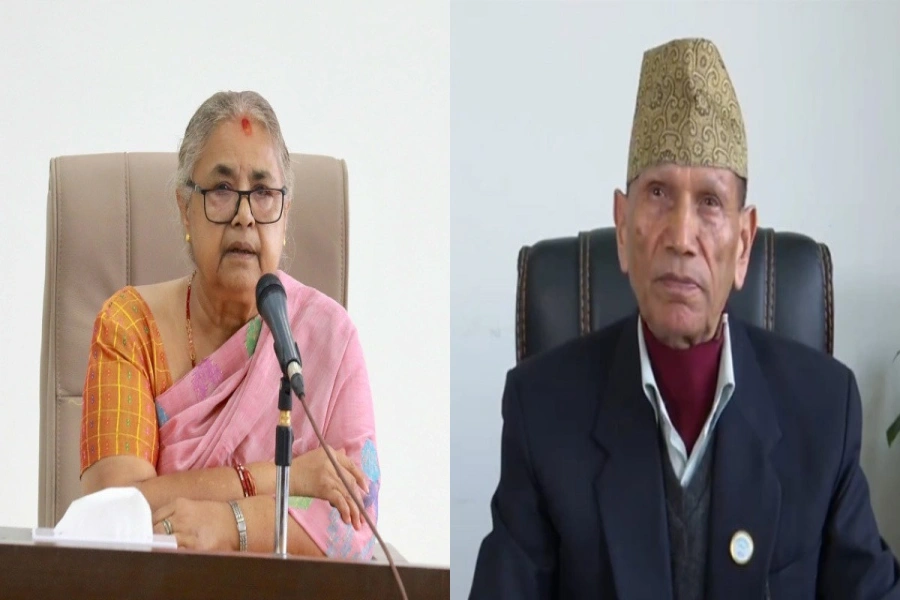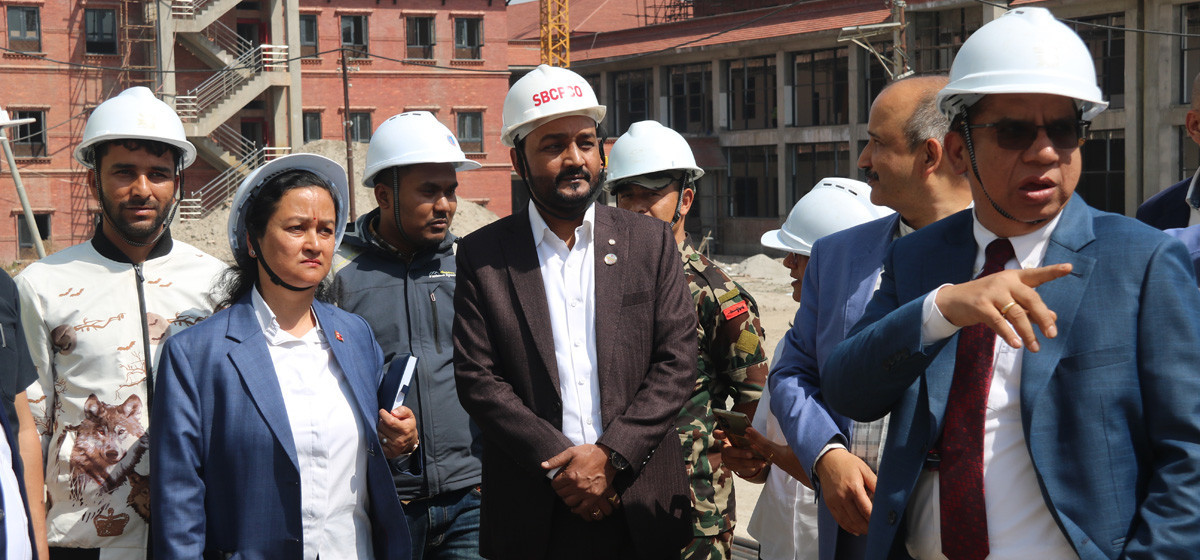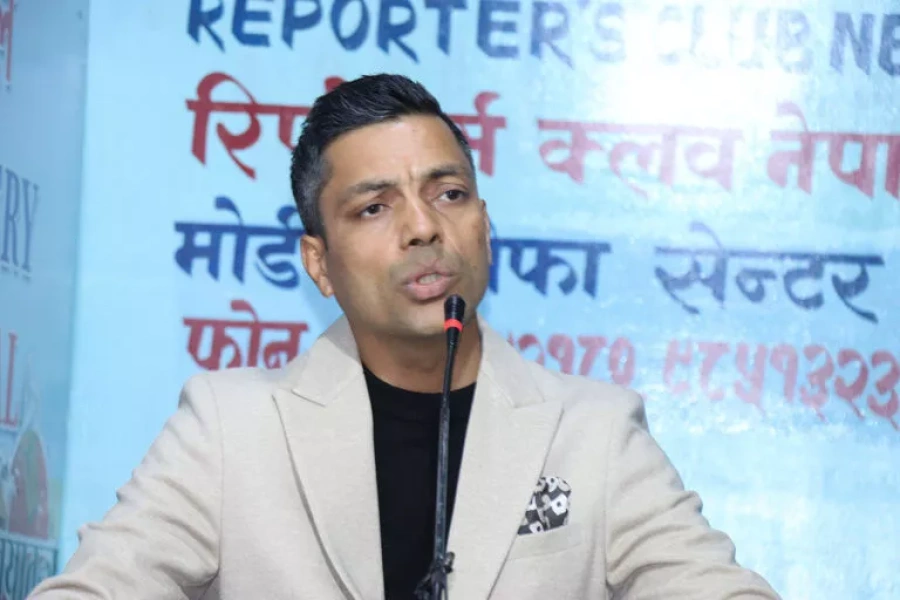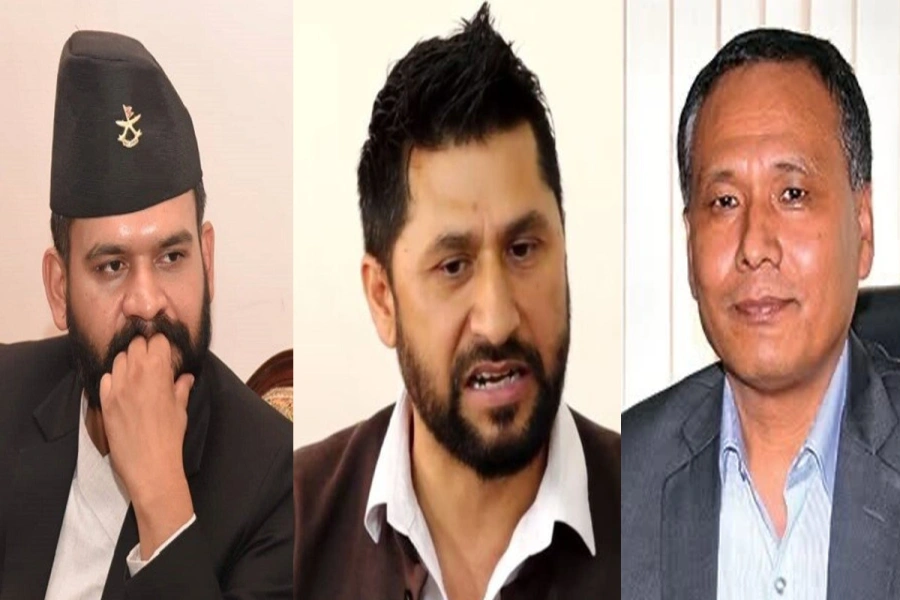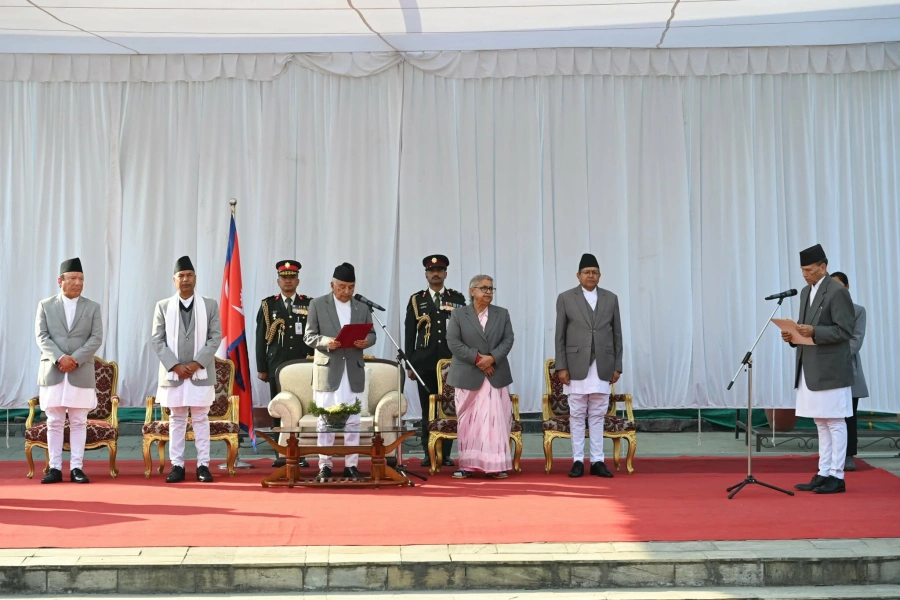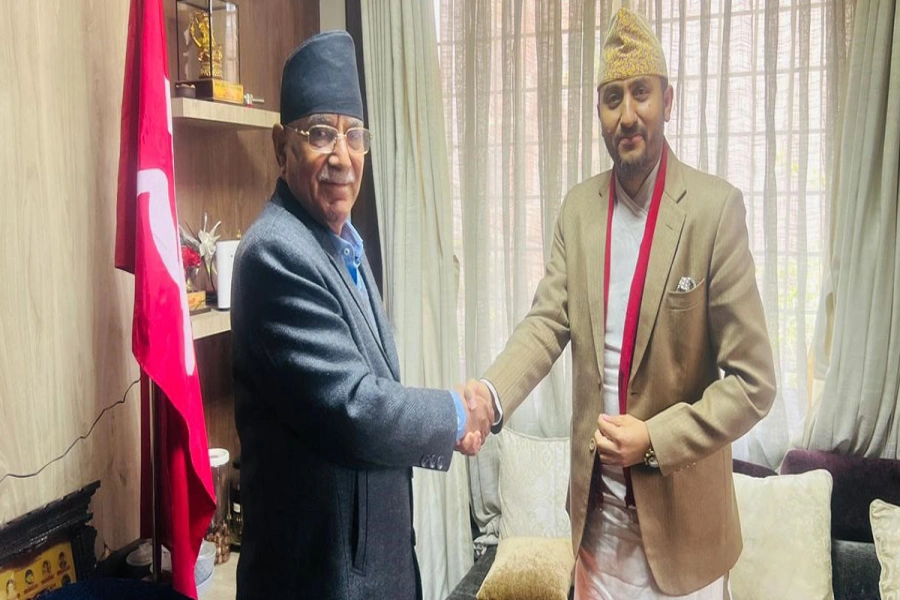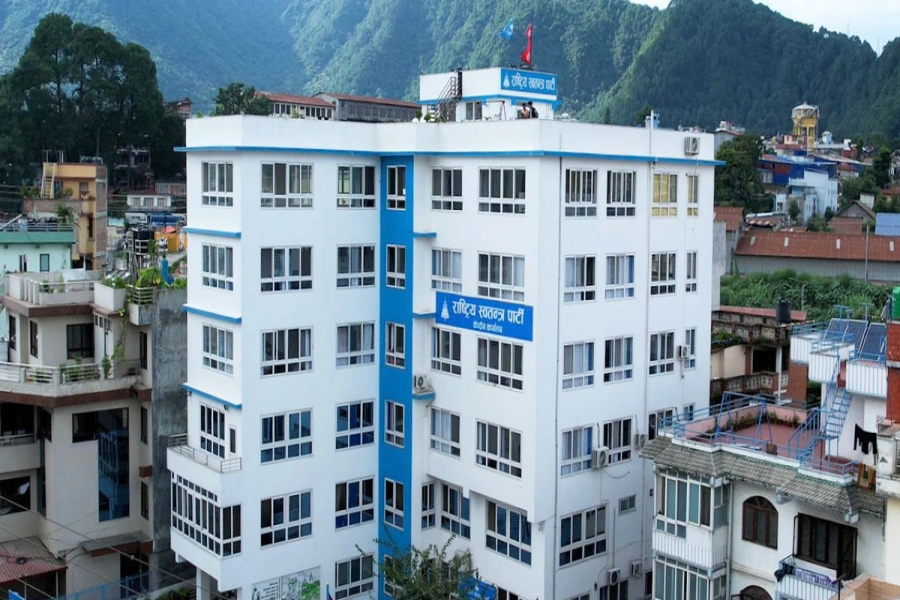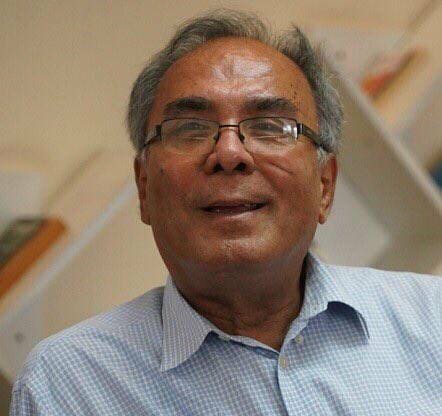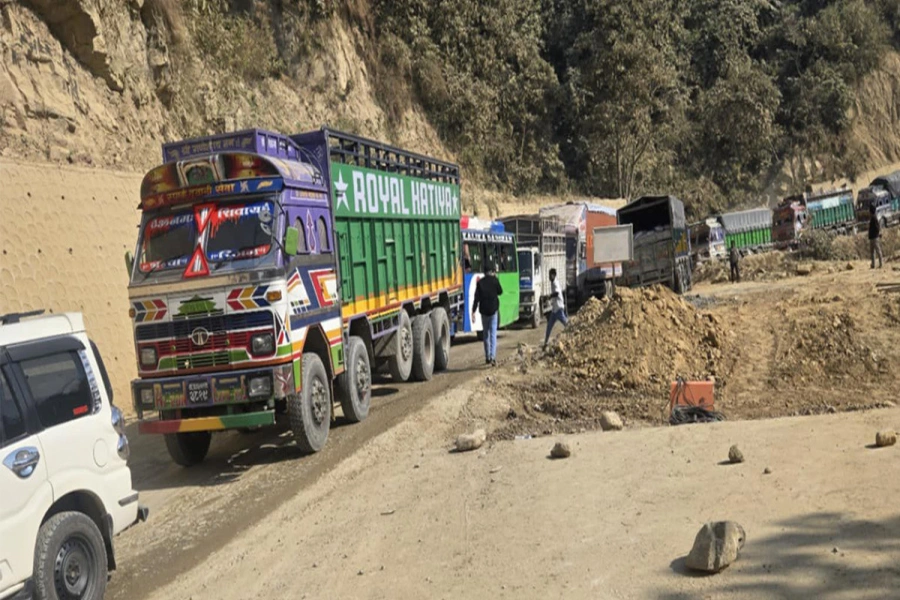Subash Bhandari guarantees that more than 90 percent of bottled water manufactures are working with integrity and as per the standards set by the DFTQC.
News of bottled water companies being forced to halt production for failing the standard test has been making the headlines for a while now. Rohit Mahoto too has been keeping up with the developments during breaks between customers at his local convenience store. He confesses that every now and then, he is hit with pangs of guilt. He remembers selling bottled water from a couple of companies that have been blacklisted. Apparently, there were also a few times when he had noticed that the brand name on the label of the bottled water was different from the one on its cap. But back then, he hadn’t given it much thought, dismissing it as a manufacturing error of some kind.
These days, though, with consistent reports of the Department of Food and Technology and Quality Control’s (DFTQC) investigation and findings, Mahoto says that the pieces have started to fall in place. Now he has apparently begun reassessing the kind of bottled water distributors that he deals with especially since the customers themselves have become significantly more suspicious about the quality of bottled water available in the market.
“There was a time when people just used to pick up a mineral water bottle or ask for mineral water jars to be delivered to their homes but these days almost two-thirds of my customers ask me ten different questions. I have to work really hard to reassure them,” shares Mahato.
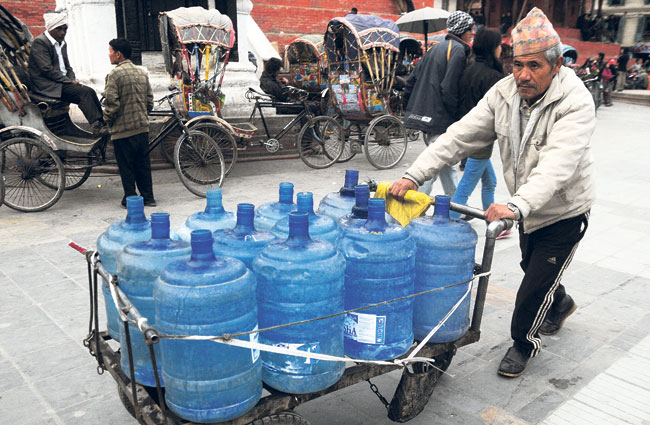
[Photo Courtesy: Dipesh Shrestha]
NBWIA urges traders to sell jar, bottled water not exceeding se...

It’s the kind of distrust and skepticism that presently envelopes the bottled water industry. So in midst of it all, Director of the Nepal Bottled Water Industries Association (NBWIA), Subash Bhandari is asking consumers and the market not to panic. He guarantees that “more than 90 percent of manufactures are working with integrity and as per the standards set by the DFTQC.” However, having said that, he doesn’t deny their concerns about the lab tests and inspections proving clear violations of the health and sanitation codes. It was a problem that had been festering in the industry and many industry insiders were well aware about it too.
Rabin Shrestha, a member of the NBWIA and Business Manager at Aqua Minerals Pvt. Ltd points to the rapid increase in the demand for bottled water. The exponential growth of the industry over the last couple of years has attracted many people who were keen to start a business and in process this has created several loopholes.
“I believe we are facing these problems because people didn’t take their responsibilities seriously. Simply put, it’s lack of professionalism,” says Shrestha. “In order to meet the demands and compete with the prices in the market, some sadly opt for shortcuts. For instance, there are many companies who rely on third parties to supply their water. They don’t source or treat the water on their own. In such cases how can they regulate its quality? Unfortunately, the practice has become quite rampant. We all know it.”
It’s the reason Shrestha claims everybody in the water bottled industry welcomes the DFTQC’s investigations. Over at H2O distributor’s office, Marketing Manager, Pralad KC also agrees. These regulation violations were apparent especially since the market prices have been incredibly competitive of late.
KC states, “While bottled water companies like ours invest crores of rupees in our lab and equipments, there are companies out there who are running on Rs 500,000 - Rs 10,000,000. Since the DFTQC isn’t interested in regulating the market pricing or setting any margin on the minimum amount required to be invested in bottled water companies, the market is very competitive. We have more than 200 companies in Kathmandu alone fighting for a space. Cutting corners can be very tempting for some, thus we are all for these investigations.”
While established companies like Aqua Minerals Pvt. Ltd and H2O are putting up a confident front even in midst of all the speculations on the basis of owning superior technology to assure their product’s quality, lesser known bottled water companies are currently aware that they might be victims of prejudice. They are certainly more vulnerable to losing the goodwill of their customers.
At his office of Life Waters plant, Sanjan Lal Pradhan says he is more determined than ever to maintain the quality of his supplies. “We need to obtain a license and meet all regulation clauses put by the DFTQC to start a bottled water company. I believe the issues arise when you decide to neglect your responsibilities to maintain the quality. We have never been careless in this regard. Further, all the factory or lab equipments don’t need big investments. There are reliable Chinese machinery that perform the same task, at lesser cost for those of us running at a smaller scale,” explains Pradhan.
He reiterates that the important factor is the protocol used to purify and process the water. He believes pitting established and non established companies against one another on the basis of their investments would be unfair.
As it is, Shyam Prasai, Director of Royal Spring Mineral Water & Beverage Pvt. Ltd feels like some of them are already at a disadvantage. Recently, Prasai had his factory closed by the DFTQC on accounts of a missing document. He knew the officials were coming for a visit but since he had maintained the required standards, he wasn’t expecting this result.
“The DFTQC members come in a very intimidating fashion with police officers and members from the media. They look around and poke at things and in those instances, if there isn’t an articulate person who can speak up and explain things, I feel like you will automatically land yourself in trouble. I didn’t think there was a need to lock down my factory because of missing documents. What’s more, they don’t create all that hoopla while ending the lock down. I wonder if they realize the damages they caused to our reputation,” says Prasai.
The DFTQC certainly have their hands full. Prasai isn’t the only one who has questioned their investigation system. While he does commend the department’s initiative to regulate the quality of drinking water available in the market, from his own experience, he isn’t satisfied with the level of expertise in the team. Further, there have also been many concerns regarding the department’s lack of premise on which they issue lock downs and re-openings.
When asked about these matters, Purna Chandra Wasti, spokesperson of the DFTQC, reveals that they too have felt the need and thus are working on making these investigations more scientific and reliable.
“20 years ago, we didn’t pay much attention to the regulations. But since we have become a country where more than 75 percent of people depend on bottled water, quality of drinking water must be maintained. Some clauses and laws that we have aren’t as specific as they should be and we could use a team of experts in this field. These investigations shall be more sophisticated in the future,” says Wasti. In the time being, they are pleased that their investigations have been able to get all the bottled water companies on their toes and wary about meeting the standards.
priyankagurungg@gmail.com



